A century ago Bulgarians used to relax sipping their Turkish-style coffee with lots of sugar, eating Turkish delight or baklava as they engaged in talks. Discussing politics, they were shrouded in tobacco smoke holding a glass of absinthe in hand. Traditional rakia (grape brandy) was considered good for digestion and a tested cure-all over the centuries.
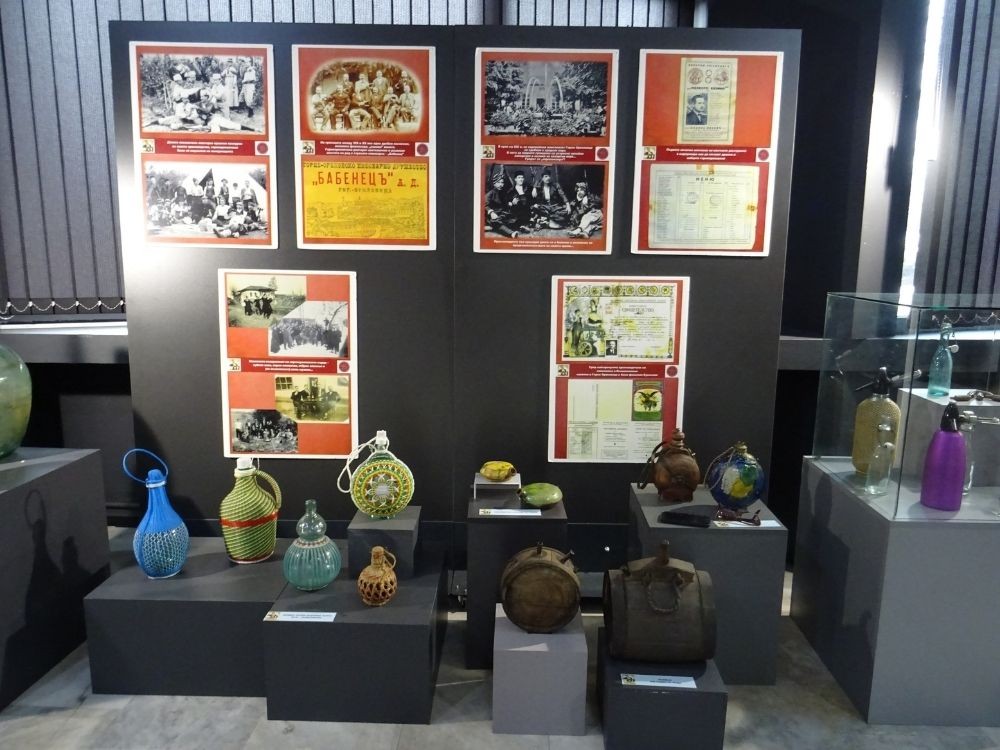 What were the temptations and vices of Bulgarians in the past? The answer to this question is given by an exhibition entitled "Vices" in the National Polytechnic Museum in Sofia. The first section of the exhibition is dedicated to "Alcohol & Bottles".
What were the temptations and vices of Bulgarians in the past? The answer to this question is given by an exhibition entitled "Vices" in the National Polytechnic Museum in Sofia. The first section of the exhibition is dedicated to "Alcohol & Bottles".
"It is a curious fact that at that time bottles of 500 and 750 milliliters were not distributed and most of the drinks were sold in 300-milliliter bottles," Madlen Yaneva from the museum's public relations department says. “Some of them looked like works of art and their outlines resembled the silhouette of a naked female body or a mermaid, according to the imagination of the drinker. The other difference from today's bottles is that they were not labeled with paper labels, but the brand, manufacturer and year were marked directly on the glass."
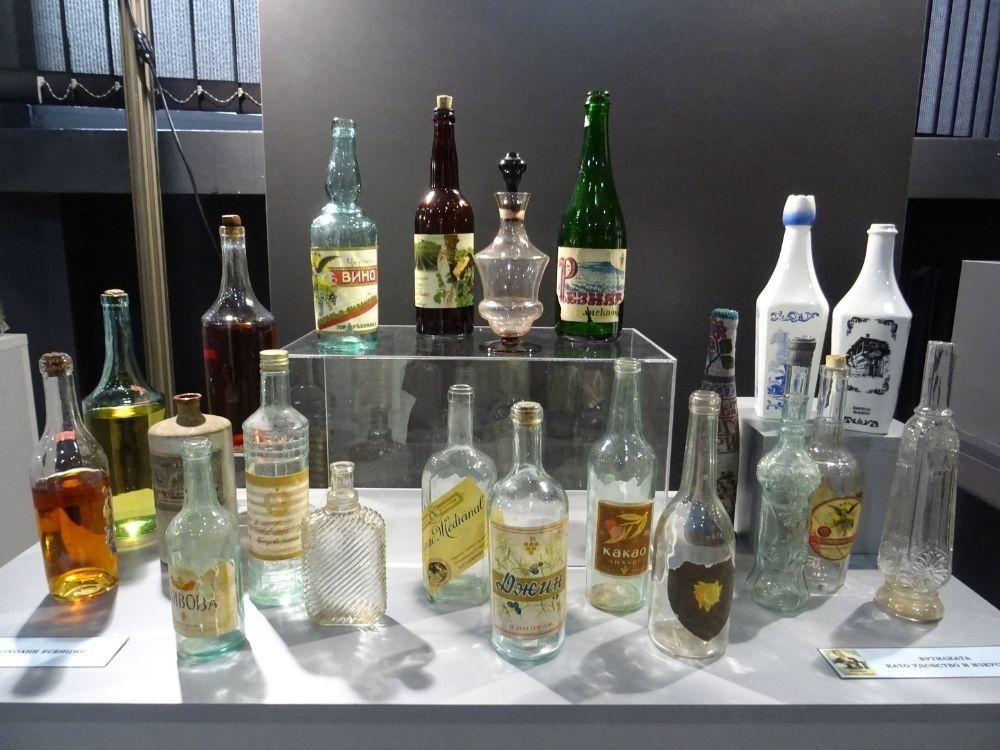 The section "Tobacco, snuff, etc." shows the introduction of tobacco in Bulgarian lands and the commercialization of one of human weaknesses. Visitors can see cigarette boxes, pipes, snuff boxes, provided by the Historical Museum in Gorna Oryahovitsa, as well as three valuable items from the "Palace Collection" of the Polytechnic Museum.
The section "Tobacco, snuff, etc." shows the introduction of tobacco in Bulgarian lands and the commercialization of one of human weaknesses. Visitors can see cigarette boxes, pipes, snuff boxes, provided by the Historical Museum in Gorna Oryahovitsa, as well as three valuable items from the "Palace Collection" of the Polytechnic Museum.
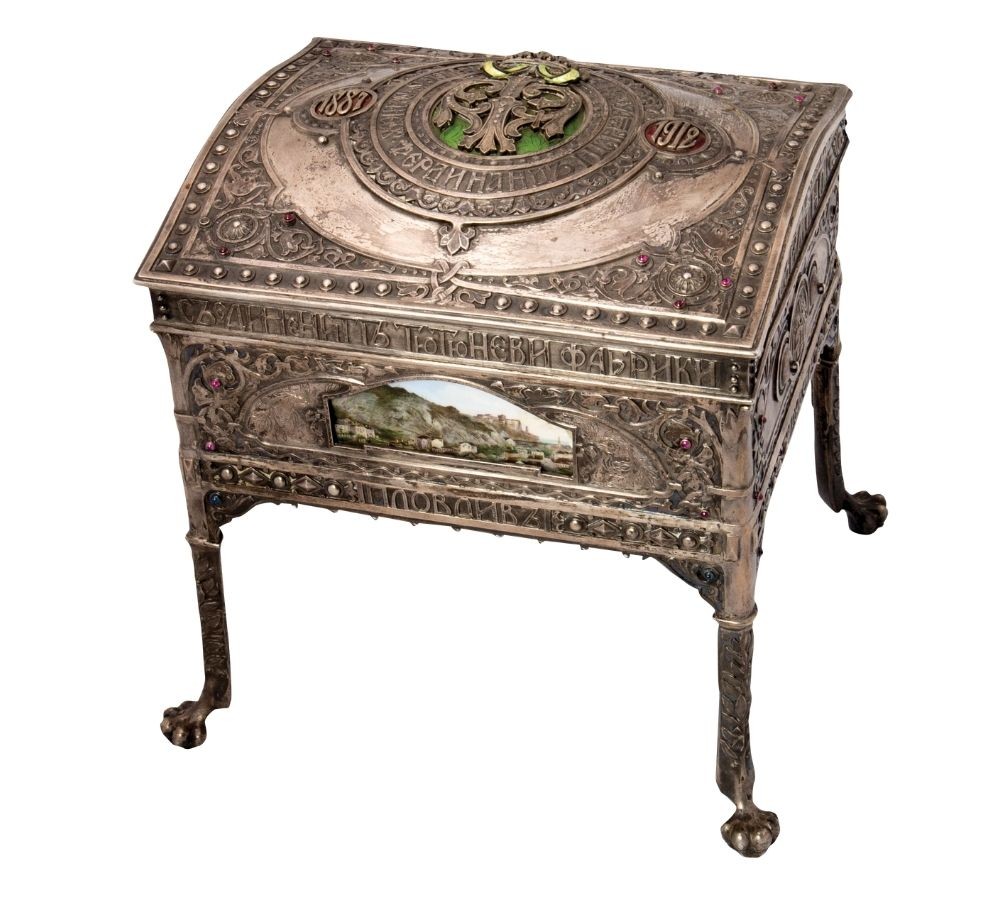 "The first is a silver cigarette case, a gift to Tsar Ferdinand from the United Tobacco Factories Joint Stock Company in 1912, on the occasion of the 25th anniversary of his accession to the throne," Madlen Yaneva says. “The case, designed by artist Haralampi Tachev, was made in the studio of famous Viennese jewelers and is decorated with colored enamels, rubies, sapphires, as well as a beautiful landscape of the Plovdiv hills.
"The first is a silver cigarette case, a gift to Tsar Ferdinand from the United Tobacco Factories Joint Stock Company in 1912, on the occasion of the 25th anniversary of his accession to the throne," Madlen Yaneva says. “The case, designed by artist Haralampi Tachev, was made in the studio of famous Viennese jewelers and is decorated with colored enamels, rubies, sapphires, as well as a beautiful landscape of the Plovdiv hills.
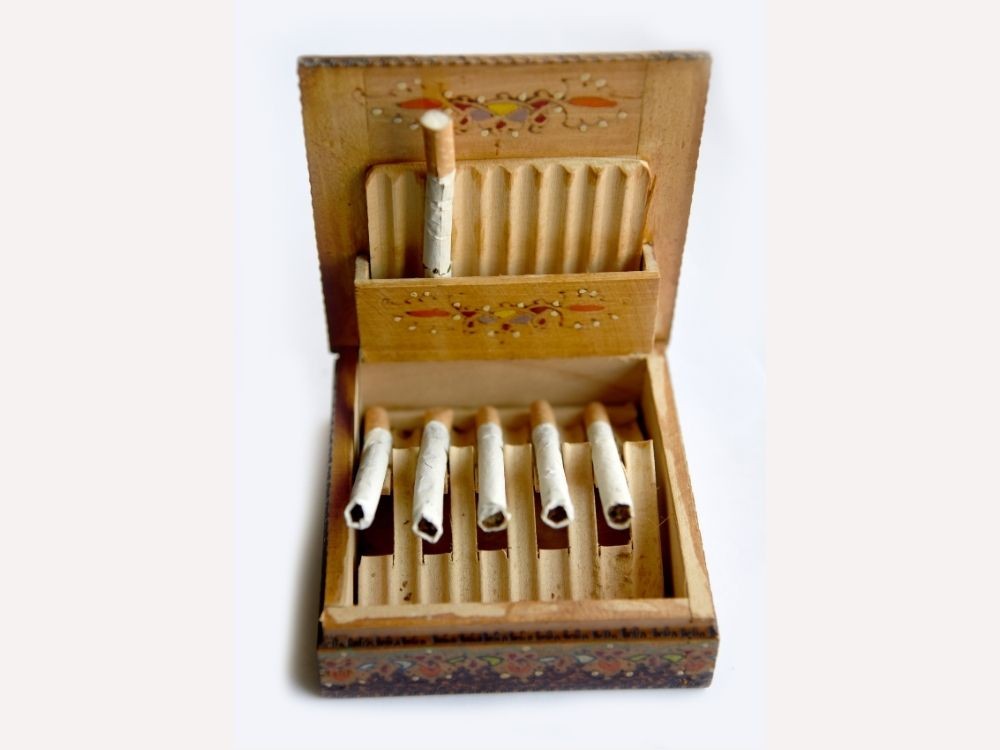 We also show a luxury cigarette case, donated by Dimitar Stavridis - owner of the tobacco workshop Orel (‘Eagle’) in Plovdiv and producer of the first Bulgarian cigars, made especially for the opening of the Plovdiv exhibition in 1892. We also show an Ottoman coffee set of 11 cups in a beautiful box with the sign of Sultan Abdul Hamid II, produced in the Russian Kuznetsov porcelain factories at the end of the 19th century.”
We also show a luxury cigarette case, donated by Dimitar Stavridis - owner of the tobacco workshop Orel (‘Eagle’) in Plovdiv and producer of the first Bulgarian cigars, made especially for the opening of the Plovdiv exhibition in 1892. We also show an Ottoman coffee set of 11 cups in a beautiful box with the sign of Sultan Abdul Hamid II, produced in the Russian Kuznetsov porcelain factories at the end of the 19th century.”
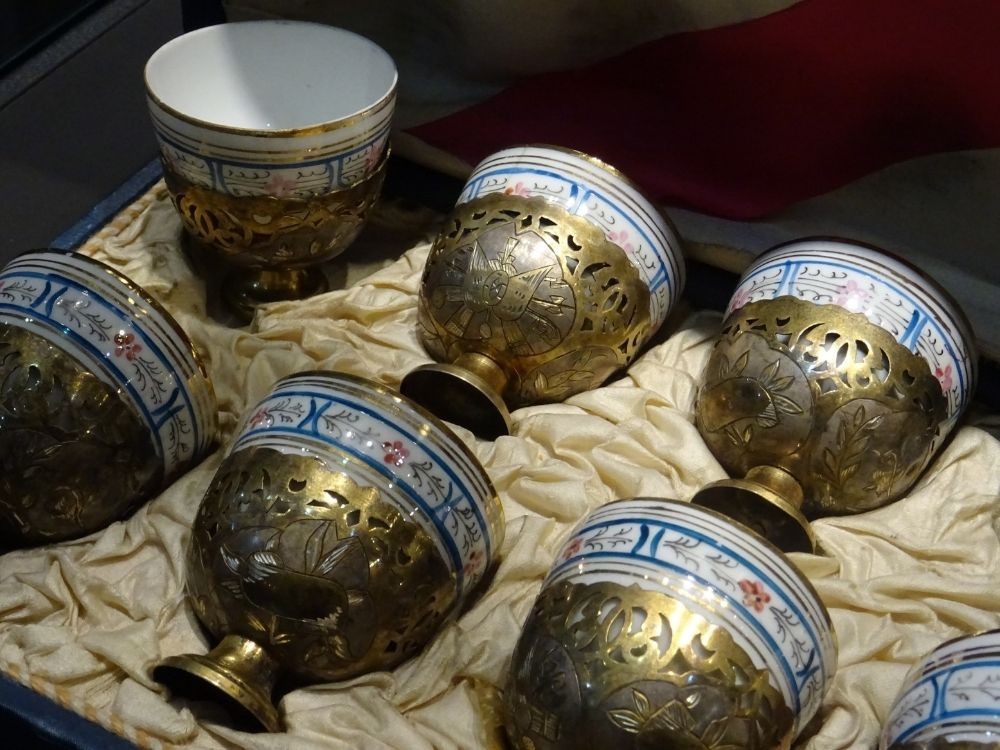 In the section "Sugar, coffee, etc." the focus is on the key role of Gorna Oryahovitsa in the field of confectionery. Sweets were sold in the streets as well as ‘salep’ - beverage made from the tubers of the orchid genus Orchis and sweetened with sugar or honey.
In the section "Sugar, coffee, etc." the focus is on the key role of Gorna Oryahovitsa in the field of confectionery. Sweets were sold in the streets as well as ‘salep’ - beverage made from the tubers of the orchid genus Orchis and sweetened with sugar or honey.
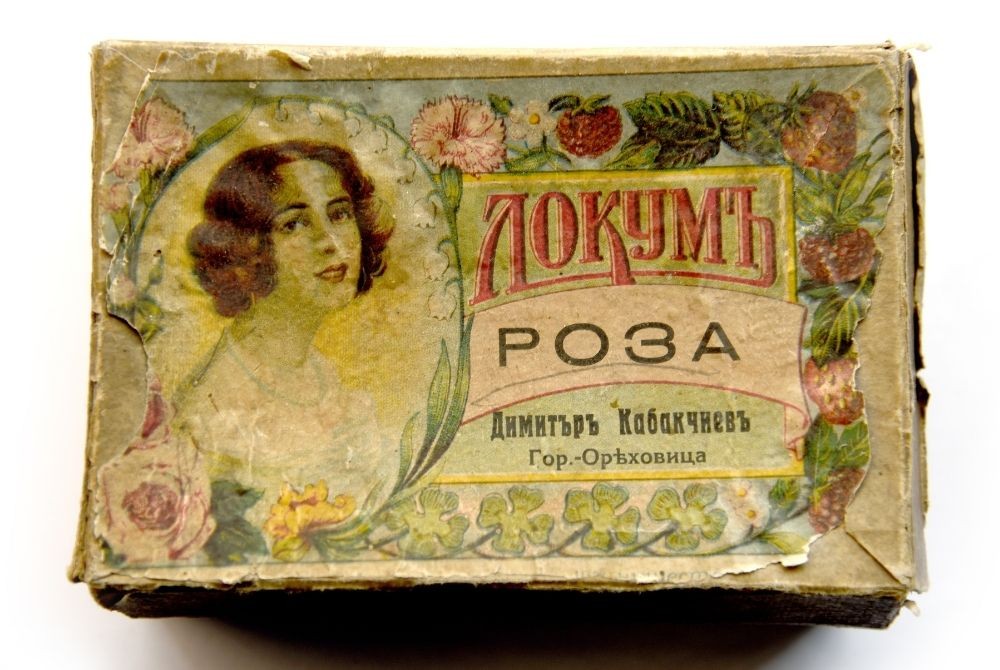 "Archival photographs and documents also tell visitors about the trade and marketing paths that local companies followed to reach fans of sweets,” Madlen Yaneva says.
"Archival photographs and documents also tell visitors about the trade and marketing paths that local companies followed to reach fans of sweets,” Madlen Yaneva says.
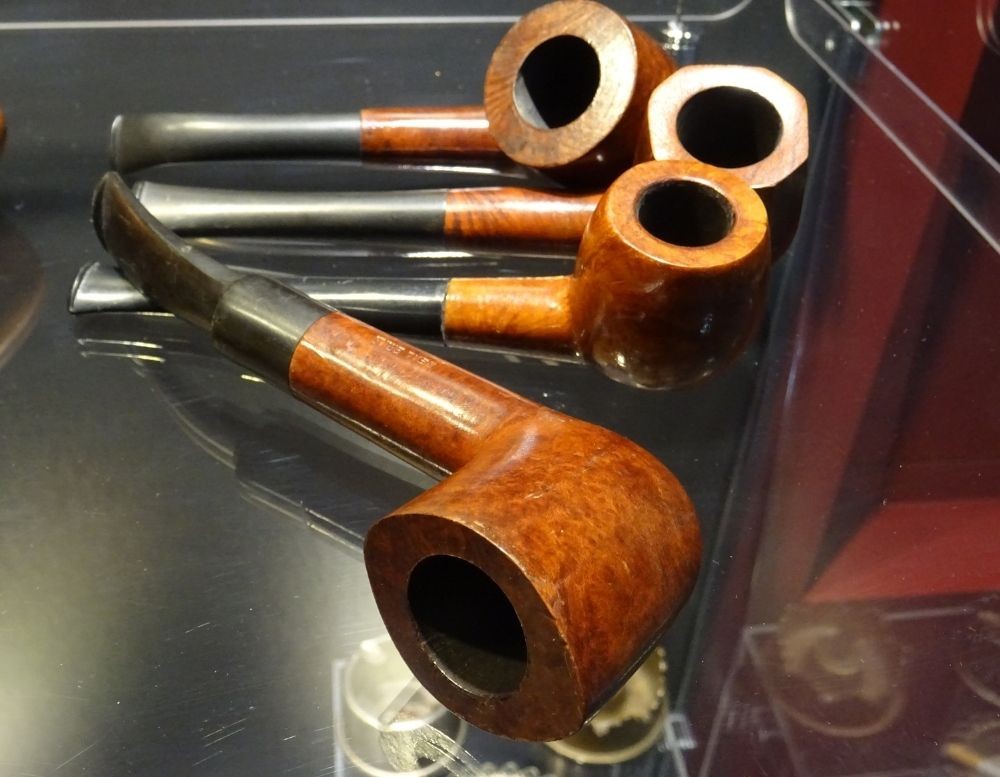 Looking at the exhibition at the National Polytechnic Museum, which continues until the end of May, the visitor realizes that temptations have not changed much over time. Bulgarians continue to eat sweets, drink, and smoke. Madlen Yaneva reiterates an old Bulgarian proverb: “Too much of a saint is not dear even to God.”
Looking at the exhibition at the National Polytechnic Museum, which continues until the end of May, the visitor realizes that temptations have not changed much over time. Bulgarians continue to eat sweets, drink, and smoke. Madlen Yaneva reiterates an old Bulgarian proverb: “Too much of a saint is not dear even to God.”
English: Alexander Markov
Photos: National Polytechnic Museum
The short animated film "Life with an Idiot" by Theodore Ushev won the best film award at the Beijing International Short Film Festival. The animator announced the news on his Facebook profile. "I am very happy because it is..
The Vladigerov brothers will provide a live musical accompaniment to a silent film at Vienna’s Metro Kulturhaus cinema , marking their second time taking on the challenge. The historic Metro Kino has been run by the Austrian Film Archive since 2002,..
The film “Made in EU” by director Stefan Komandarev won the Audience Grand Prize at the 63rd Gijón International Film Festival in Spain. The film triumphed in competition with 95 titles, BTA has reported. “Within a few days, we..

+359 2 9336 661
